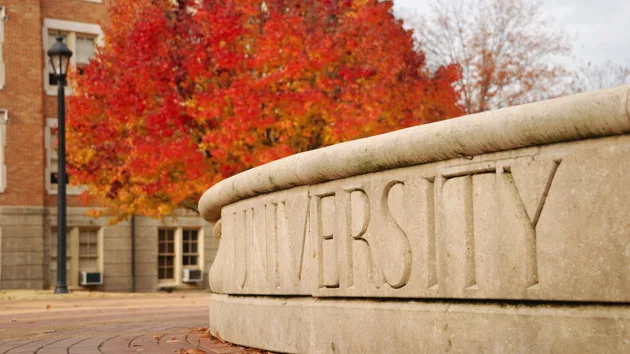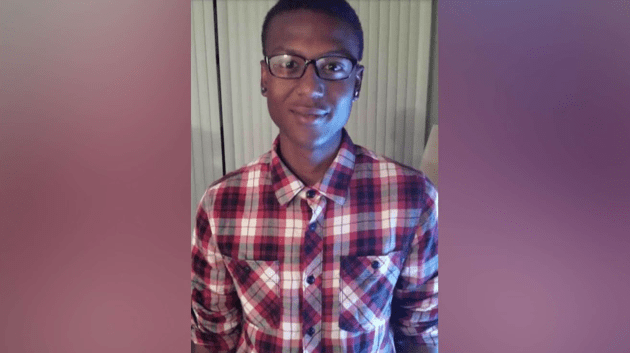
(MIDDLETOWN, Conn.) — The Supreme Court’s decision to end affirmative action nationwide was based on what was described as a fundamental sense of fairness. The rationale was that a student’s college acceptance should rely on their grades, not on race.
Opponents of the ruling immediately pointed to the fact that colleges have lots of special admissions carveouts, including for family members of staff and alumni.
Wesleyan University became, this week, the latest college to announce that it is disbanding its policy of “legacy admissions.”
Michael Roth, the university’s president, spoke to ABC News’ “Start Here” about the decision.
START HERE: So legacy admissions, this is the idea that if your family member went to Wesleyan, you’ll be prioritized [and] you have an easier time getting in. Is that gone?
MICHAEL ROTH: It’s done. And in Wesleyan, it has been a very small piece of what we do for many years now, because of these questions of fairness. We have, just about 5% of the accepted students have a parent who went to Wesleyan, and probably around half of those people will wind up coming.
And almost all of those people would get in whether we had legacy admissions policies or not. And, in the future, they’ll only get in if they are more qualified than the other people we don’t have room for.
I mean, we’re in this weird position, which is… that we have a small liberal arts-oriented university and two-thirds of the people who apply are perfectly well qualified to do quite well on campus.
But we only admit about 15, 16% of the people who apply. That’s all we have room for. Because the quality in our school depends on it being… pretty small, small classes, [and] intense relationships with professors.
So we don’t have room for all the qualified people, but we will no longer allow people to use their affiliation with a family member, as a leg up in the process.
START HERE: Why now? Is this directly related to the Supreme Court’s ruling? Because, like, they were passing judgment on something where everyone’s got to do that. You guys are imposing this new rule on yourselves.
ROTH: I thought about doing this about five or six years ago because actually most of my experience with legacy admissions is when I’m talking to an alum who feels like, ‘How did my daughter not get in? She got into some other great school and you rejected her.’
START HERE: Oh, like, they sneak it into conversations and say, ‘Sure would have been nice,’ or something?
ROTH: Oh, not even. They’ll call me up and say, ‘She got into some school that’s even more selective than we are, and she didn’t get into Wesleyan, and you say you help alumni.’
And so I did a lot of those conversations over the years, and about five years ago I went to a group of younger alums who are advisers to the president, and, they’re a more diverse group, and I said, ‘Why don’t we just get rid of this?’
It’s not really defensible. We don’t use it very much anyway.
And they were actually quite against getting rid of it at that time. They said, now that we’re finally, our kids are going to finally be eligible for this little perk, you’re taking it away. Now, it’s a more diverse school now than it was, when I went there in the ’70s, the alumni body was all white and almost all men. And now it’s not that way anymore.
However, it still really advantages white people and it advantages wealthier people. And in the wake of this decision where the court said you can’t use the affiliation of an applicant with a racial group. Well, I don’t think you should be able to use it with affiliation with your alumni group.
I mean, if you’re a great flute player, we’d say, we really want a great flute player and you’re a great student and all these other respects, you’re the great flute player. But if you say ‘my dad’s a great flute player,’ we don’t care. We shouldn’t care. And, I think that many schools will do this, and I think it’s, it’s high time we did it. So we made that decision this week.
START HERE: Yeah, I was going to say, what are you seeing from other colleges and from other college presidents? Because there have been a few, but there’s a lot out there that legacy is kind of a nice thing to have on your campus.
ROTH: Well, it is a nice thing, and…some of my best friends have parents who went to Wesleyan [laughing]. My parents didn’t go to college, so I didn’t really understand this stuff when I was a student. I think it’s great to have those affiliations, but they should be earned, not given through entitlements.
START HERE: But do you think other colleges are going to have the ability or the willingness to do something like this?
ROTH: I don’t know. I’m a historian, academically speaking, and I’ve been very, have a hard time predicting the past even, so the future is tough for me, but I hope so.
The other reason we got rid of legacy admissions now… is because we wanted to send a very clear signal to students of color around the country, to low-income students around the country, to people from regions of the United States and elsewhere who don’t normally apply to Wesleyan and schools like us. We wanted to send a strong signal that we want them to come to Wesleyan, [and] that we want them to apply.
START HERE: Oh, so that almost becomes a competitive advantage now, just that headline of we don’t have legacy admissions now.
ROTH: I don’t know if it’s a competitive advantage; it’s just, it’s a signal to people that we want to play fair. And we are serious about a diverse campus. We can’t admit people because of their race, or advantage people in the process because of their race. We never really admitted people because of their race, but we can’t pay attention to their racial affiliation.
So he wanted to send a signal that we want a diverse campus. And so in this announcement about legacy, the reason you’re talking to me is because we’re talking about legacy, but that’s a tiny thing. What I would rather talk about is that we’re recruiting veterans. That we’re, we have a program in Title I high schools all over the country to bring more low-income kids to Wesleyan and schools like Wesleyan.
We’re starting a program in Africa to recruit cohorts of African students from several different countries every year.
Getting rid of legacy admissions was a way to announce our other diversity initiatives as well.
START HERE: There have been some that have spoken up in defense of legacy admissions. One of the reasons being loyalty, and it’s kind of nice to have folks around on campus who are very loyal to the school.
The other reason is money is the argument here. You’ve got families that are intensely loyal to Wesleyan, and are basically, ‘Please let us give you money throughout our generations of our family lineage now.’ Are you putting Wesleyan’s financial security on the line to satisfy like a kind of moral agenda?
ROTH: I don’t think so. I mean, as the, as the president of Wesleyan, my obligation is to make it economically stronger over time. And I think we’ve done that as I’ve been president. And I, I’ve been very focused on that. I’ve raised more money for Wesleyan in the last 15 years than anyone has ever raised for the university in its history, so I’m very committed to raising money.
I think we’ll raise more money from an alumni body that is proud of the school for doing the right thing. I don’t want Wesleyan to be like the PGA. Say, ‘Oh, we couldn’t, they made us an offer we couldn’t refuse.’ I mean, this op-ed about loyalty…in the newspaper, that we want loyal people, it sounds like you’re in organized crime.
No. The richest schools in America should not be those who are defending the necessity of raising money from people who only give you money if you treat their students unfairly, as an advantage.
At Wesleyan… 3,000 or so students, I know every major donor, and I hope I know them pretty well. And they give money because they love the school, and they love what it stands for. And their kids sometimes go to Wesleyan, sometimes they go to an Ivy League school, [or] sometimes they go elsewhere. And if they come to Wesleyan, it’s because they deserve to be there.
I’ve gotten so many messages today from alumni who say my daughter or my son is now going to apply because they know they’re going to be treated fairly. They don’t want to go to a school where their people can say, ‘Oh, you got in because your mother went there.’
That’s not how our alumni body works.
And I believe that we will raise more money because we’re doing the right thing.
But if I’m wrong, there should be another president of Wesleyan in a couple of years.
I want people to have their kids go to Wesleyan. If they deserve to be there, great. But I want people to be proud of the Wesleyan student body for its diversity, for its ambition, for its talent and creativity, and for its ability to work really hard to do the things that matter.
Copyright © 2023, ABC Audio. All rights reserved.





